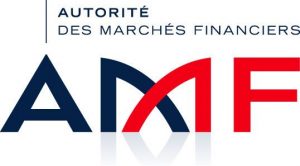Master in Banking Management
Diplôme national en convention avec l’Université de Lille : Master de Droit, Économie, Gestion
Mention Monnaie-Banque-Finance-Assurance – Parcours Métiers de la Banque de Détail, Management des Banques et des Institutions Financières
For whom ?
For students with a bachelor’s degree in Economics and Management or Economics and Finance who have a real appetite for business, an ability to listen and proven interpersonal skills
Why choose this master ?
- Gain sound knowledge of all markets: personal, professional and business
- Understand marketing, actuarial work and statistics, information systems, risks, auditing, compliance, legal issues, communication
- Start on a pathway towards all banking sector professions and management roles
- Learn negotiation and communication skills
advantages
- A professional experience over 2 years through Work-Study, a real stepping stone for entering the workforce.
Experiential Pedagogy: courses taught by academics and banking professionals, conferences by economists and financial analysts, practical application through the study of real-life cases.
.
Information: Digital access to financial press (Les Echos/La Tribune/Investir…), Navis Fiscal; free access to the University Library and the Online Library.
Developing skills: strengthening interpersonal skills and sales capabilities; combining knowledge and soft skills.
Program
The subjects and credits presented in this program are subject to change without compromising the essential content and directions of the training.
Master 1
Alternance de septembre à mai : 2 semaines en cours / 2 semaines en entreprise
En entreprise de juin à mi-septembre.
| Matières |
| SEMESTRE 1 |
| UE : Commercialisation de produits financiers |
| Entrée en relation – produits d’épargne bancaire |
| UE : Economie bancaire et financière |
| Politique économique |
| Conjoncture économique et financière |
| UE : Expertise professionnelle et recherche |
| Méthodologie de recherche |
| Problématiques professionnelles |
| Anglais – Business negotiation |
| UE : Gestion des risques bancaires et financiers |
| Mise à niveau en mathématiques |
| Finance des marchés |
| UE : Stratégie bancaire |
| Stratégies du conseil : définition et méthodologie |
| Système, intermédiation et stratégie bancaire |
| Droit bancaire |
| UE : Interdisciplinaire |
| Jeu d’entreprise |
| TOTAL SEMESTRE 1 : 30 crédits ECTS |
| SEMESTRE 2 |
| UE : Commercialisation de produits financiers |
| Connaissance du marché des professionnels et des entreprises |
| Epargne assurance-vie |
| Gestion des flux bancaires internationaux |
| UE : Finance d’entreprise |
| Création d’entreprise – Analyse financière |
| Décision et techniques de financement des professionnels |
| UE : Conseil en gestion de patrimoine |
| Impôt sur le revenu, fiscalité des particuliers |
| Impôt sur le capital – Contrôle fiscal |
| Droit des Sociétés |
| UE : Expertise professionnelle et recherche |
| Problématiques professionnelles |
| Anglais – Business negotiation |
| Méthodologie de recherche |
| Évaluation de la période en entreprise |
| UE : Gestion des risques bancaires et financiers |
| Connaissance des marchés financiers |
| Economie de l’assurance |
| TOTAL SEMESTRE 2 : 30 crédits ECTS |
| TOTAL MASTER 1 : 60 crédits ECTS |
Master 2
Alternance de septembre à mai : 2 semaines en cours / 2 semaines en entreprise
En entreprise de juin à août.
| Matières |
| SEMESTRE 3 |
| UE : Finance d’entreprise |
| Analyse financière approfondie |
| Risques sur la clientèle professionnelle et PME |
| UE : Conseil en gestion de patrimoine |
| Épargne salariale – Madelin – PEE – PERCO |
| Stratégies patrimoniales et fiscales des particuliers |
| Les régimes matrimoniaux |
| Aspects réglementaires du bilan patrimonial – Big Expert |
| UE : Expertise professionnelle et recherche |
| Négociation |
| Méthodologie de mémoire |
| Anglais – Business negotiation |
| UE : Stratégie bancaire |
| Gestion du risque bancaire |
| Contrôle de gestion bancaire et audit interne |
| TOTAL SEMESTRE 3 : 30 crédits ECTS |
| SEMESTRE 4 |
| UE : Economie bancaire et financière |
| Stratégie d’allocation d’actifs |
| UE : Finance d’entreprise |
| Droit du financement de l’entreprise |
| UE : Conseil en gestion de patrimoine |
| Marché immobilier |
| Statut social et fiscal du chef d’entreprise |
| Le démembrement de propriété |
| Droit et stratégie de la transmission d’entreprises |
| Stratégies patrimoniales et fiscales |
| UE : Expertise professionnelle et recherche |
| Parler en public |
| Négociation |
| Anglais – Business negotiation |
| Synthèse professionnelle |
| Mémoire |
| Évaluation de la période en entreprise |
| UE : Interdisciplinaire |
| Ethique et finance |
| Management d’équipe |
| TOTAL SEMESTRE 4 : 30 crédits ECTS |
| TOTAL MASTER 2 : 60 crédits ECTS |
Preparation for AMF certification
Autorité des Marchés Financiers
success rate
Our Partnerships









In which sector of activity do our graduates work?
- Wealth and Personal Banking : 54 %
- Professional and Business Banking : 46 %
They are account managers, client advisers, wealth advisers, research managers, branch managers, and more…

During these two years of master, I learned a lot of things, especially from a theoretical point of view, but also in practice. The training is complete: whether it’s economics, taxation, management, general knowledge, accounting or even commercial negotiation, no facet is left out. The fact of having teachers who are largely from the professional world and who have a real expert role in their field is an undeniable advantage, both for the content of the training and for the way in which this content is taught.

The Master’s in Banking Management allowed me to develop and deepen my knowledge in economics, finance and risk management, which I was able to apply during my work experience.
Over the course of 2 years, I have benefited from quality infrastructures, the expertise of professional speakers, and personalised support from the teaching team.
Thanks to its high teaching standards, this master’s is now widely recognised in the professional sector, bringing a certain prestige to job interviews. Just after I graduated, I was hired on a permanent contract as a Professional Account Manager at BNP Paribas, the bank where I completed my 2 years of work/study training

The Master’s in Banking Management allowed me to develop my banking knowledge, particularly with regard to economics, finance and law, and to acquire new technical expertise while discovering the different professions that exist in the banking world.
The Faculty of Management, Economics and Science offers a great working environment, from the buildings and teachers to the professionals from the world of work. This setting allowed me to develop my sense of curiosity and innovation.
The connections between students, teachers and professional figures have helped me build an incredible network of contacts and benefit from support both during and after my master’s degree. This is essential for a first job








